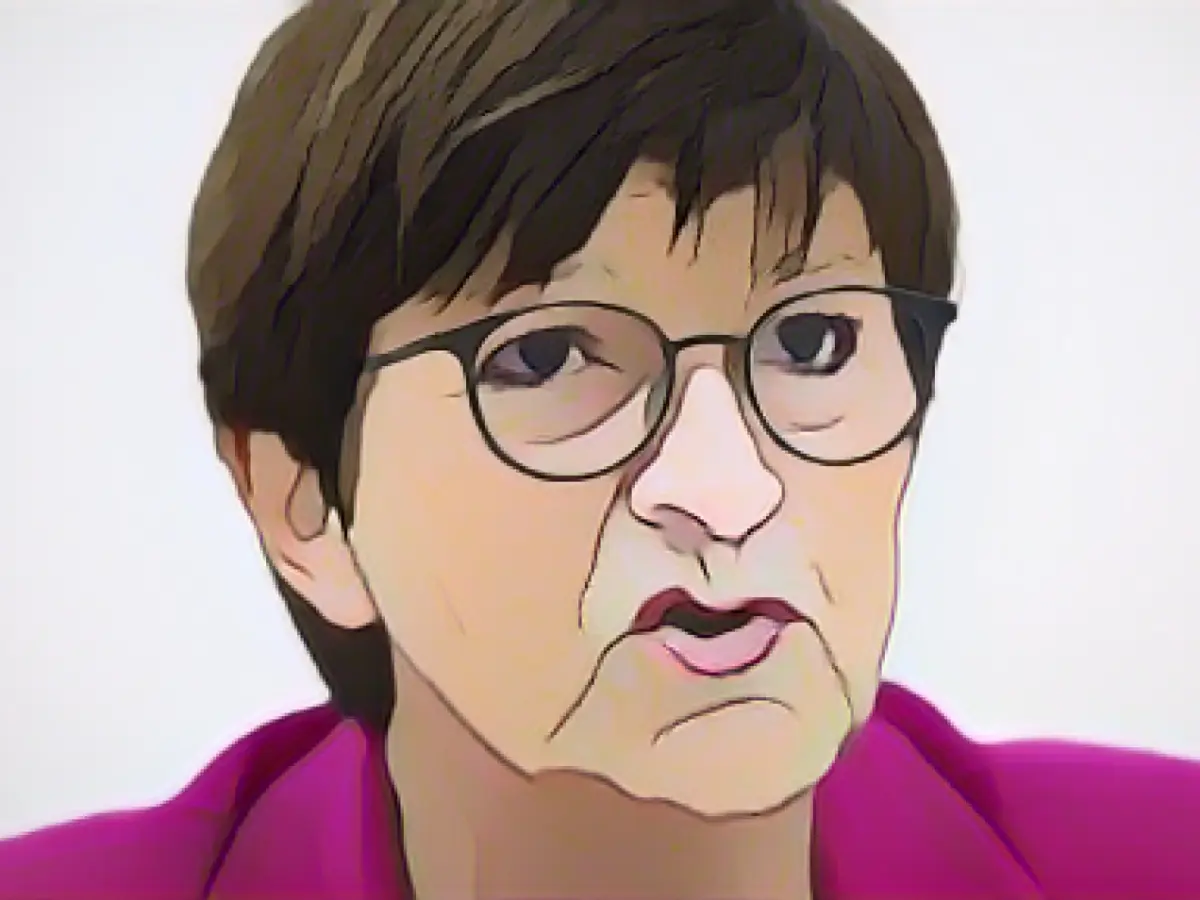Title: Esken Rejects Pistorius's Proposal for Conscription in Germany's Military
Outspoken SPD leader Saskia Esken has dismissed Defense Minister Boris Pistorius's ideas about reintroducing compulsory military service in Germany. In an interview with the German Press Agency, Esken stated, "I'm not a fan of reinstating conscription for adults. I believe that the Bundeswehr is currently at its best as a professional army and should focus on further development."
During an interview with "Welt am Sonntag," Pistorius mentioned examining compulsory service models, including the Swedish conscription model, due to the Bundeswehr's personnel shortage. Pistorius stated, "Whether something like this could also be an option here is just one aspect of our considerations." However, he acknowledged the need for political consensus before implementing any changes.
Esken's Objections
Training units required for immediate implementation of compulsory military service are no longer available in the Bundeswehr, according to Esken. This, coupled with the lack of fairness in military service, has contributed to the suspension and de facto abolition of conscription in Germany.
Esken said that the Swedish compulsory service model would not achieve the desired fairness in military service, either. The Bundeswehr currently selects only a portion of each age group for service, and it remains to be seen whether the Swedish method would address these concerns.
Scholz's Position
Federal Chancellor Olaf Scholz (SPD) has also been staunchly opposed to a return to compulsory military service. In February, he stated in an interview with Bild newspaper that dealing with the Bundeswehr as a professional army made a return to conscription unnecessary.
Sweden's Approach
Sweden temporarily suspended compulsory military service in 2010 but resumed it in 2018 due to a shortage of voluntary personnel. Peter Hultqvist, the Swedish Minister of Defense at the time, explained that it had been difficult to man combat units with volunteers only.
Conclusion
Pistorius is exploring different approaches to address the Bundeswehr's personnel shortage, including the Swedish conscription model. However, his proposal has faced opposition from both within and outside his party, including from Scholz and Esken. The debate surrounding compulsory military service in Germany is complex, with arguments for and against reintroducing it, and the ultimate decision will depend on the political will and consensus within the country.
Enrichment Data:
Argument for Reintroducing Compulsory Military Service in Germany: 1. Enhanced Security Role for Europe: Defense Minister Boris Pistorius emphasizes the need for Europe to play a more active role in security and defense. He argues that Europe needs to strengthen NATO and enhance its military capabilities to address potential security threats and shifts in US foreign policy priorities.
Argument Against Reintroducing Compulsory Military Service in Germany: 1. Economic Costs: Reinstating the draft would impose substantial economic costs, including the opportunity cost of foregone earnings for conscripts. Economists argue that the financial burden of the draft extends beyond the wages paid to the military, impairing the societal benefits gained from their presence in other professions. 2. Impact on Freedom: Compulsory military service would limit young people's freedom to choose their careers, potentially impeding innovation and economic growth. The reintroduction of conscription could also reignite fears of personal liberty restrictions. 3. Effectiveness of the Military: Some argue that conscript-based military forces might not be as effective as all-volunteer forces. All-volunteer forces allow for specialized training and higher retention rates, crucial elements for combat effectiveness.
Additional Context: There have been ongoing discussions about Germany's military preparedness and defense policy. In 2021, the German government approved a 100 billion euro defense spending plan through 2024 to modernize its armed forces and enhance its ability to respond to a wide range of threats. This plan also aims to increase the number of soldiers from 180,000 to 200,000, addressing the Bundeswehr's personnel shortage in part.








